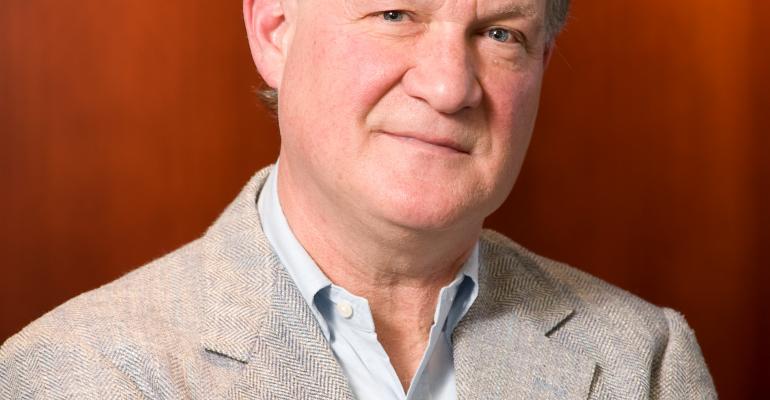When I arrive for lunch with TrueCar.com’s Scott Painter, he’s already at the table. Next to his place setting is a tall shot glass holding a clear liquid. Yikes. I knew TrueCar had a rough year, but I didn’t realize it is driving its CEO to drink.
Yet Painter never touches the stuff throughout the meal. When I get coffee and ask for sugar, the waiter slides the shot glass my way. Turns out, it contains liquefied sugar, not Grey Goose. Gosh. What’s next, salt spray?
I tell Painter of my mistaken deduction that he’s an early-afternoon imbiber. “You thought that’s how I roll?” he laughs.
Painter has put himself through a rehab program of sorts. It’s not because of a drinking problem. It’s an effort to fix his company that fell out of favor with a lot of car dealer clients.
TrueCar provides sales leads to dealers and pricing information to consumers. The way it did the latter got it in trouble. That pricing method has changed. So has Painter’s attitude.
TrueCar was “arrogant,” “glib” and “offensive to the industry.” Critics had said that last year. Looking back, Painter now uses those same words. “We were such an arrogant voice in the conversation, the response by many people was, ‘We are going to resist everything you are doing,’” he says.
Detractors had accused TrueCar’s website of taking pricing transparency to an extreme and consequently hurting dealer profits. Part of the blame goes to hyper-competitive dealers who used the TrueCar website to offer ridiculously low prices.
They ended up chasing each other off a cliff, Painter says. Some might say TrueCar gave them a push.
Describing how the website originally operated, he gives an example involving 19 of 65 Southern California Toyota dealers who were TrueCar clients.
“Most were price-competitive already,” he says. “We’d say, ‘The lowest price is $19,400, do you want to beat it?’ Some would say, ‘Sure.’ There was a name-that-tune mentality. Dealers would say, ‘$19,300…$19,200…$19,100.’
“In reality, our website was showing customers $22,500 as the average price and $21,400 as a fair deal. Dealer should have been taught that $21,400 is where to be to price to get highest-retained margin and a good likelihood of a closed sale. You don’t have to go to $19,300.”
But some indeed did. It became a race to the bottom, with TrueCar firing the starting gun; a reverse auction with TrueCar as a fast-talking auctioneer. Painter spent a lot of time defending the business model. Now, he admits its flaws.
It hurt dealers profits and ultimately cost TrueCar as dealers started to push back. Many stopped buying leads from TrueCar. The company went from a peak of 5,700 dealer clients to 3,107.
“It was the biggest setback for me personally and professionally in my 20 years in the business,” Painter says. “We lost nearly $40 million in the first half of the year. Now we are close to making money again. We’re up to 5,200 dealers on our program.”
Painter did two things to try to make things right. He confessed to acting intemperately. And he changed the TrueCar model.
“We realized dealers were losing money as a result of using our system,” he says. “We needed to disable that by not showing lowest prices. We needed to give them better tools, analytics and an understanding of where the market was.”
Now, dealers are pricing cars less aggressively on TrueCar, even though they can if they really want to. But TrueCar has stopped spurring them on.
“There is nothing to prevent the crazy-Eddie maneuver of dropping the price way low,” Painter says. “But we are no longer giving dealer information as to who is at the bottom. Instead, we’re saying how the market is behaving.”
TrueCar now also requires car shoppers using its website to register and provide information such as name and a valid email address. That basically filters out grinders who would grab upfront pricing information and use it to try to get a better deal elsewhere.
TrueCar still tells consumers what others are paying on average for a vehicle. Painter remains committed to that. “We believe accurate and transparent pricing information in the hands of both consumers and dealers enables a better transaction for both parties.”
But gone is, in his words, the company’s “stick-it-to-the-man” brashness. He’s also stopped telling dealers how to run their business. “I said things I shouldn’t have,” he says soberly. “Those aren’t Scott conversations anymore.”
He will speak Tuesday before a group of dealers at the DrivingSales Executive Summit in Las Vegas. He’ll do a Q&A with DrivingSales CEO Jared Hamilton. It is billed as “an honest and open interview about TrueCar and how it has affected dealers."
Among those planning to attend is David Ruggles who is a consultant, former dealership general manager and WardsAuto columnist. He has been one of Painter’s toughest critics.
Of Painter’s impending DrivingSales conference appearance, Ruggles says, “I’ll be in the front row.”

